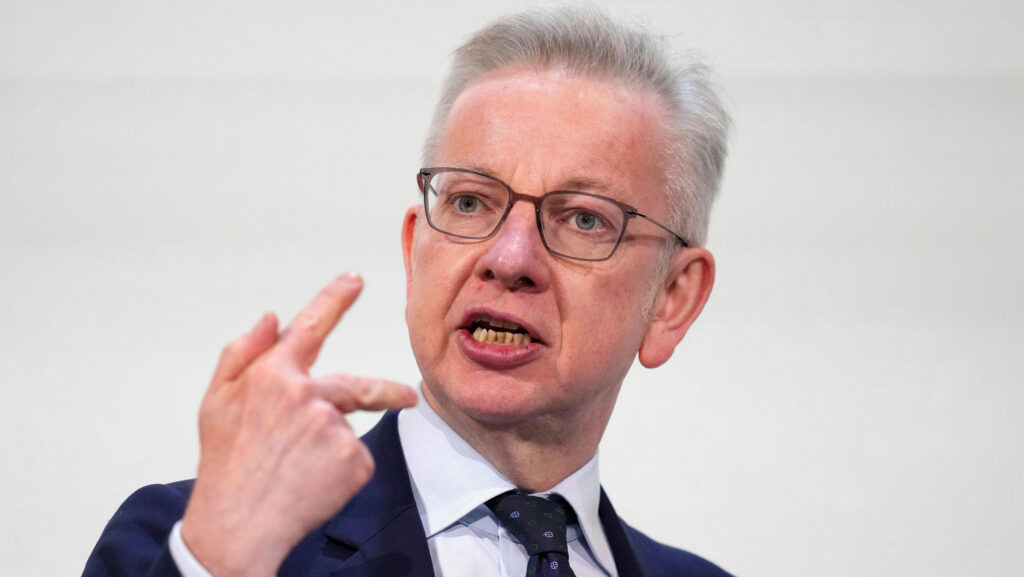Editor’s View: Former Defra secretary reveals sting in his tale
 Michael Gove © Associated Press/Alamy Stock Photo
Michael Gove © Associated Press/Alamy Stock Photo Michael Gove, the former Defra secretary, among other things, looked slightly diminished on stage this week at Chatsworth House for Future Countryside, a rather posh get-together for pondering the future of, well, the countryside.
Whether it’s the loss of the mantle of office, the use of weight-loss drugs (apparently very common in Westminster), or some other cause on his mind, I have no idea, but he was sharp as ever as he held forth on his time as environment secretary.
Politely acknowledging that plunging farmer confidence in the department’s performance was not just down to one party (farming minister Daniel Zeichner was awaiting his turn to perform), Mr Gove deployed the fable of the frog and the scorpion.
See also: Delay farm tax raid or risk rural ruin, MPs warn Labour
For those unfamiliar, it’s the tale of a hapless frog who agrees to carry a wicked scorpion across a river on his back.
Halfway across the scorpion stings the amphibian, dooming them both to drown.
With his dying breath, the frog asks the scorpion why he acted so, to which he replies: “I am sorry, but I couldn’t help myself. It’s my character.”
A rather sobering thought from the editor of The Spectator given that until recently he himself was a member of the scorpion fraternity – the political class in this metaphor – while the farming sector was represented by the humble frog.
Mr Gove was referring to the loss of trust brought on by regular flip-flopping over environmental payments that has infuriated farmers under both the Tories and now, in the latest Sustainable Farming Incentive debacle, under Labour too.
Yet it is the inheritance tax (IHT) fiasco that has been by far the primary reason why Labour have so rapidly used up any stock of goodwill they may have had with the countryside after winning the last election.
Again this week, we see the current crop of politicians desperately trying to deny there is a sting in their tail at all, with current Defra secretary Steve Reed’s remarks to the Efra committee the most breathtakingly disingenuous.
Coming a close second, though, is the Treasury. Its refusal to publish an explanation as to why the clawback mechanism – a tax-raising proposal suggested by the farm lobby as an alternative to the IHT changes – would raise less revenue and should therefore be dismissed out of hand is very miserly.
For all this, it is still vital not to view the whole business of politics and all politicians through the lens of treachery.
This week’s agreement between the UK and the EU is a case in point.
Much as-yet-unpublished detail will need scrutiny, but it appears that agriculture is more the beneficiary than the sacrificial lamb, with hope that exports can flow more simply and cheaply, and trade in some banned products – such as seed potatoes – can resume.
Sometimes, as with IHT, farmer-government relations are like Mr Gove’s frog and scorpion, and some farming businesses will needlessly go under water because of this.
But the relationship between farming and politicians is more often like two rams choosing to butt heads.
If you’ve got a banging headache, it’s harder to acknowledge that the grass has become greener.

